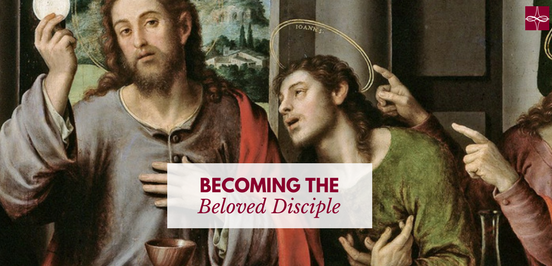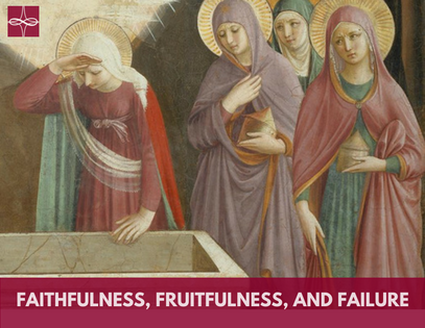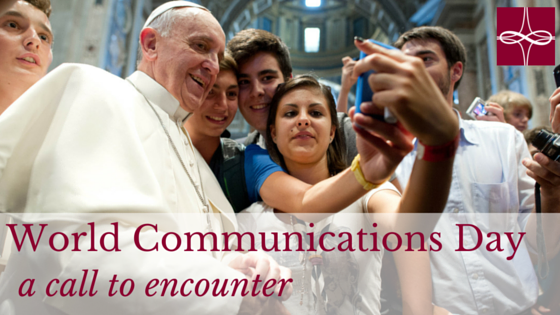|
St. Paul offers us this challenge: “Be filled with the Spirit . . . giving thanks to God the Father at all times and for everything in the name of our Lord Jesus Christ” (Eph. 5:20) (emphasis added). Be thankful “at all times” and for “everything?” “Well that would seem to include suffering and evil. Really Lord – you want me to be thankful for that trial in my life? I'll be thankful for other things but not for that. That's impossible! Lord, at the very least, maybe you could tell me a little bit more about how I can live this radical gratitude? Help my unbelief!” This is how my prayer dialogue went with God one day as I examined my attitude toward gratitude. I thought to myself, “Do I treat gratitude as just one of those nice pious sentiments that I should do in general, but ignore when it costs me? In other words, do I make gratitude just a platitude?” I know I have treated gratitude in that way and have brushed off the Christian teaching to be thankful 'at all times' as idealistic on more than one occasion. I began to examine my soul more in depth. Why do I do this? “Usually,” I concluded, “it is because of a lack of knowledge as to why something is good for me and because my thoughts are too limited on the topic.” But God wants to break open our limited thoughts and actions. So I pressed on in my search for a deeper meaning of gratitude. Here is what I discovered. I read a book recently that changed my perspective on gratitude. The author explained that gratitude is not just a good practice to do occasionally to uplift our spiritual lives, but is actually a necessary law of every Christian spiritual life. Gratitude is not an option; it is something we have to practice regardless of temperament, disposition, or circumstance. Based on my reading, I came up with two patterns for our spiritual life: the “cycle of spiritual fruitfulness” and the “cycle of spiritual emptiness”. The cycle of spiritual fruitfulness begins with trust in God, which is nourished through faithfulness to one’s prayer life. Through prayer, gratitude grows. Gratitude is being aware of God’s many gifts in the daily happenings of our lives. Gratitude then becomes a necessary part of trust, especially in the midst of our suffering because gratitude opens up our heart to God. As we see more of God in our lives, then we give more to God and in turn are better able to receive more of God's love and grace in our life. This cycle, which begins with trust and gratitude, then repeats as we grow in love and become more loving gradually. This can be boiled down to: Trust through Prayer → Gratitude → Opens Heart → More Love The cycle of spiritual emptiness begins with a lack of trust in God and a lack of faithfulness to one's prayer life. Negativity focused on our weaknesses, what we lack, and our suffering replaces gratitude, closing our hearts and making us less capable of receiving God's love. We may even sin, like Adam and Eve in the Garden of Eden, whose ingratitude ultimately led to the first sin (Genesis 3). If we let this endure too long, then our whole life can become one big storm of sadness and anger. This can be boiled down to: Distrust through Not Praying→ Negativity → Closed Heart → Less Love Radical Gratitude Reconsidered The cycle of spiritual fruitfulness offers us several good reasons for why St. Paul instructs us to be grateful at all times and for everything with no exception. If I want to open up my heart more to the Lord and thereby love more, then I must find a way to be thankful - even for the most difficult suffering. Thankfulness is not an option reserved only for those who describe themselves as sanguine or optimists; thankfulness is a necessary part of holiness. It is therefore no coincidence that the highest Sacrament in the Church, the Eucharist, in Greek literally means “thanksgiving, gratitude.” With this in mind, I went back to my dialogue with God. I asked God for the grace to be more grateful in my daily life for everything. God, in turn, has asked me when I am tempted to be ungrateful and negative to make an act of trust in the moment and find something to be grateful for – health, the fresh crisp autumn air perhaps, or even more profoundly – my daily Sacrament with my wonderful wife – and thereby to become more aware of His love in my life. Slowly then, I become a little more grateful and a little less negative. Eventually I hope to build a habit of radical gratitude for every occasion in my life. This gratefulness does not come overnight and does not necessitate a formal act of thankfulness at every moment. As I become more grateful in those little moments, I will not only be able to resist ingratitude in the more difficult moments, but will also be better able to be grateful even for new sufferings. In this way, I am trying slowly to become thankful at all times by committing to a few acts of trust each day through gratitude. Radical gratitude is possible, but only through God’s wonderful grace! Through grace, I have come to learn the importance of radical gratitude and the cycle of spiritual fruitfulness. I choose the cycle of spiritual fruitfulness. What cycle are you on? Come Holy Spirit, make all of us more radically grateful!
0 Comments
"I will give them a new heart, and put a new spirit within them." -Ezekiel 11:19 I hold my son Leo closely, rocking him back and forth in the quiet of the night. He throws his head back, pushes against me, and babbles to keep himself awake. As his mother, I must be patient and persistent. The fruit of my efforts results in his deep breathing, dangling arms, and heavy eyelids. Leo is now ten months old—crawling, pulling himself up, climbing. While he still looks to me for assurance and affirmation, he much prefers exploration to stillness. Not wanting to miss a thing about this big world, he wrestles with me as I put him down for naps and at bedtime. I often think as I sing to Leo and soothe him to sleep: This is how I am with God. I wrestle with him, pushing back, filling my life with distraction. I prefer my will—my way—to his own. I forget to rest in his stillness. In my graduate program, a professor once shared a particularly beautiful insight that still strikes me today. He said that if two human beings rest long enough on each other’s chests, their hearts sync up and beat in rhythm with one another. As a mother, this insight is especially poignant and beautiful to me—I think of my son’s heart slowing down and mine speeding up to embrace and beat as one. Then I apply this truth to God: have I allowed myself to rest in him? Do our hearts beat as one? The Gospels tell us that John, the Beloved Disciple, reclined on the chest (kolpos in Greek) of Christ at the Last Supper. Applying my professor’s insight to the Gospel, we can gather from this image that John’s heart beat in time with Christ’s, whose own heart beat perfectly with his Heavenly Father’s. As Christians, we are all called and invited to become the Beloved Disciple. This is not a privilege for a select few. Resting on the kolpos of Christ and allowing our hearts to beat in time with his gives our lives true meaning and fulfillment. As Pope Francis said, “The Heart of the Good Shepherd tells us that his love is limitless; it is never exhausted and it never gives up. There we see his infinite and boundless self-giving; there we find the source of that faithful and meek love which sets free and makes others free; there we constantly discover anew that Jesus loves us even to the end’ (Jn 13:1), without ever being imposing.” This intimacy with God, however, does not happen overnight. The Gospel does not say that John rested on the chest of Christ right after Jesus called him to discipleship on the Sea of Galilee. This intimacy was the fruit of years spent in the presence of Jesus. It is the fruit of a deep relationship with him—sitting at his feet, sharing meals, listening to his preaching, witnessing his miracles. We do not rest on the chest of a stranger. We are called, therefore, to grow in intimacy with God by opening our hearts to his. As the Catechism of the Catholic Church states, “It is the heart that prays. If our heart is far from God, the words of prayer are in vain.” Though Christ opens his heart to all of his children, we are called to build that intimacy with him, as John did, through prayer, stillness, the sacraments, and service. The famous quote of St. Augustine reminds us that our hearts are restless until they rest in God. And so we will not feel satisfied in this world until we have allowed ourselves to rest in the heart, on the kolpos, of Christ. “God’s heart calls to our hearts, “ Pope Benedict XVI observed in his homily on the Solemnity of the Sacred Heart of Jesus. When we allow ourselves to rest in the heart of Christ, he invites us “to come out of ourselves, to forsake our human certainties, to trust in him and, by following his example, to make ourselves a gift of unbounded love.” Our encounter with the heart of the Good Shepherd, therefore, is what strengthens us to go out in our respective vocations and live as missionary disciples. May we rest on the kolpos of Christ and experience his perfect charity so that we may become “gifts of unbounded love” to the world. As we deepen our intimacy with God, let us look to John’s childlike trust and ask for his intercession in order to become who we were created to be: beloved disciples. Questions for Reflection: Do certain things keep you from growing in your relationship with Christ? How might God be calling you to rest in him? For resources on prayer, please click here. There’s a fear that’s crippling our call to discipleship today: The fear of failure. Let me just say, this is hard as Americans. We love success. We’re taught from a young age to dream it, pursue it, seize it. We value success stories; we want to have a greater impact, to change the world, to maximize results. If we can achieve this in our faith and ministry, even better, right? Well, maybe. This might be the message written into the American narrative, but it’s not necessarily the Gospel. Our assumptions start sounding odd alongside the Beatitudes Jesus gave his followers, and his promise to the disciples foretelling persecution and rejection (Mt 10:16-23). Moreover, St. Paul claimed to be “content with weaknesses, insults, hardships, persecutions, and constraints, for the sake of Christ” (2 Cor 12:10), and even instructed the Thessalonians, “to aspire to live a tranquil life, to mind your own affairs, and to work with your own hands” (1 Thess 4:11). St. Paul’s suggestions are not exactly the keynote themes we have come to expect at most high-energy church conferences these days. Not surprisingly, we are simultaneously inclined to relish the failure of others. As much as we love the success of a celebrity, we equally revel when the mighty fall. When this happens to church leaders, we assume they are fakes, phonies, or just not very gifted. What doesn’t easily capture our imagination is the struggle that happens in between — the daily living and dying to self that occupies the majority of time and energy in pastoral ministry. Resolving petty conflicts, preparing talks for kids who probably don’t care, assisting the odd homeless woman who keeps knocking at the door — if only we could eliminate these distractions and move on to the real work of the Gospel! Meanwhile, we eat up sensationalized stories of success and failure in an escape from what is real, and ultimately, redemptive. Success and failure actually have less to do with the size or location of a church than what values and expectations shape the content of our discipleship. When we inadvertently conflate American pragmatic principles for Gospel virtues, we risk making disciples who measure their faithfulness by a standard of fruitfulness foreign to the Gospel, thus creating a ministry model unhealthy for our souls and our churches. Failure is not fun or romantic. It’s not something to rejoice, or even proof of our faithfulness. But it prepares the ground for fruitfulness. Fruitful soil is rich with dead and decaying stuff — our failures — that ultimately make us ready to plant the seed of the Kingdom of God. Recovering a “theology of failure,” as Pope Francis and others have spoken of, may be an important step for renewing our Catholic imaginations and acquiring the heart of Jesus. In order to “ready this soil” there are a couple of things we can do to change the way we think about and approach our daily ministries. Ministry is a Process, not a Product When we measure a ministry’s effectiveness, we often desire quantifiable results steadily increasing along a straight line on a graph. There’s definitely a place for this kind of analysis in running a church or ministry. But doing God’s work often follows a slow progression passing through unanticipated hills and valleys. We look at a person’s life and say, “Here’s where Jenny lost her job and had to cut back time and money at church, but here’s where her small group members provided babysitting and cooked meals.” The Church and her members rise and fall by the logic of the death and resurrection of Jesus, not by the laws of the stock market. Seek Balance, not Efficiency When we elevate efficiency above balance, disciple making resembles an assembly line that aims to produce predictable outcomes in the shortest amount of time. One corrective measure we can take is to remember to keep holy the Sabbath. Is our ministry bringing us peace of soul, or are we burned out and burdened with too much stuff at church? It’s possible we need to pursue more effective systems or strategies, but maybe what we really need is to recover rest in God’s redeeming love. Share Stories of Redemption In the gospels, the opposite of failure isn’t success, but redemption. Pay more attention to stories of redemption than stories of outward success. I love the story of Blessed Charles de Foucauld, a 20th century monk and martyr who lived amongst the Tuareg people of the Sahara Desert, sharing in their daily joys and struggles while representing the love of Jesus. His story and spirituality inspired others, but only years after his death (see his Prayer of Abandonment). As part of our task for the New Evangelization, I suggest we revisit what we call success and failure and begin pursuing ends not so focused on winning in a religious market, but embodying the example set by our savior, Jesus Christ. In some way, I think we come closest to understanding our ministry in light of Christ’s death and resurrection, i.e., when we are in the valleys our world labels “failure.” In these valleys, we throw ourselves upon the power of the Resurrection, knowing we cannot rise again on our own. I am a social monastic. On the Myers-Briggs test, I score almost evenly as an extrovert and introvert. I need my personal, quiet time of reflection, as well as quality time with family and friends. Those who know of my profound love of all things monastic chuckle over my role as the Social Media Coordinator at the Catholic Apostolate Center, while those who know my social side nod their head in understanding. It is this relationship between my introvert and extrovert sides that I feel can be deepened and strengthened in order to promote effective communication and evangelization as the Church envisions them in our world today. In our modern world of social media and globalization, silence and communication seem to be at odds. The two, however, are completely intertwined. As Pope Benedict XVI wrote, “silence is an integral element of communication.” This connection between silence and communication is beautifully portrayed by the fact that we spend nine months in our mother’s womb—in silence and yet in continual communication. It is here that we begin to learn the meaning of communication and what it means to be human. Pope Francis went as far as saying that the womb “is the first ‘school’ of communication.” Anthropology then, shows us from the beginning of our existence that silence is fundamental to communication. Silence enables us to communicate with God, within ourselves, and with the outside world. Our communication must include these three aspects if it is to be effective and fruitful. Pope Francis wrote that the modern world needs “to recover a certain sense of deliberateness and calm. This calls for time and the ability to be silent and to listen.” If we are called to dialogue as witnesses of the Gospel, we must be effective listeners. We must be able to listen to the promptings of the Holy Spirit in our day-to-day lives, to listen to the stirrings of our hearts within us, and to listen to the needs, fears, hopes, and joys of the people around us. May silence and the practice of listening be our foundations for promoting a culture of encounter! This encounter is the entire point of the Christian life, of what it means to be human. In a word, “communication is really about realizing that we are all human beings, children of God,” Pope Francis wrote. We cannot live closed in on ourselves, but must be open to encountering the gifts of those around us. As the Social Media Coordinator at the Catholic Apostolate Center, I believe that social media and technology can help us bring the Gospel literally to all the ends of the earth. Social media fails, however, if it foregoes encounter, if it diminishes dialogue. Our achievements in the world of media are inadequate if they do not call to action, stir hearts, promote dialogue, or champion the true, the good and the beautiful. On January 24th, we received Pope Francis’ message for the 50th celebration of World Communications Day. This day was established by Pope Paul VI after the Second Vatican Council and is celebrated each year on the Sunday before Pentecost, which falls on May 8th this year. This day is meant to help us ponder the significant role of communication, technology, and social media in our world today. It is the fruit of a Church that is willing to read the signs of the times, step outside of itself and engage with the modern world—all of which are embodied in a special way in the papacy of Pope Francis. The Holy Father challenges us to use our communication efforts and channels as bridges that create unity and a space for encounter. He writes: “Let us boldly become citizens of the digital world. The Church needs to be concerned for, and present in, the world of communication, in order to dialogue with people today and to help them encounter Christ. She needs to be a Church at the side of others, capable of accompanying everyone along the way. The revolution taking place in communications media and in information technologies represents a great and thrilling challenge; may we respond to that challenge with fresh energy and imagination as we seek to share with others the beauty of God.” Let us go forth boldly! To learn more about Catholic Media, please visit our resource page here. In high school I had a teacher who kept a cute frog sticker on the ceiling above the doorway to and from the classroom. Her favorite saying was, “FROG it!” F-R-O-G stood for, “Fully Rely On God.” Whenever someone expressed anxiety, sadness, or some other emotion, our teacher would tell us to FROG it. Her ceiling sticker was a reminder for us to place our burdens in God’s hands and trust that he would guide us through our triumphs and tribulations. Oh how quickly we stumble and forget this trust in God’s plan for us. The last semester of my senior year of college, I had so much anxiety over finding a job. No matter what my family or friends said to encourage me, I worried 24/7. At one point, I even made myself sick by not getting enough sleep over several days. My mother told me to pray whenever I felt anxious, and to leave my future in God’s control. While I still thought constantly about the vast openness my future held after graduation, reminding myself that God had my back was reassuring. Over spring break, I visited an organization I had interned with previously. They were looking to fill a position fitting my interests and area of study. I was called a few weeks later and offered the position. Six years. That’s at least how long I can think back to decisions and opportunities God placed in my life that laid the foundation for my first job. When I reflect on this incredible plan, I can only be filled with wonder and thankfulness. Being patient for God’s timing is extraordinarily difficult, but well worth the wait. So often we want what we desire immediately, not later. Sometimes we can be so stubborn and get in the way of God’s timing by choosing the wrong decision, acting too quickly, telling God “no,” and even forgetting God at times. God uses the time of waiting to stretch our faith in him. We develop patience, a fruit of the Holy Spirit, through practice and under trial (CCC 1832). We can begin to feel satisfied as we practice this virtue. If God followed our timing, we wouldn’t grow and develop in our relationship with God or with others. In the book of Exodus, we learn how long the Israelites had to wait for God to lead them to the Promised Land. God led the Israelites on the longer journey out of Egypt to the Promised Land because they were not yet ready to place their full trust in him or his plan (Exodus 13:17-18). God also knows that if we knew how long or what it takes to reach the end, we may tire or fall from his path for us. In Ecclesiastes 3:1, we learn there is a time for everything. Seeing others around us experiencing fruitfulness while we are in drought should not cause jealousy. We must remember that these individuals may have already experienced growth or difficult stages that we currently face if we are to receive the bounty. These words from Psalm 37 remind me to place my trust in God and in his desire to fulfill my heart’s desires: “Find your delight in the Lord who will give you your heart’s desire. Commit your way to the Lord; trust in him and he will act. And make your righteousness shine like the dawn, your justice like noonday. Be still before the Lord; wait for him. Do not be provoked by the prosperous, nor by malicious schemers.” - Psalm 37:4-7 Our jobs are not to decipher when what we seek will come to fruition. Our jobs are to continue praying and seeking the result, trusting in God’s plan and asking him for the strength to participate in it. We mustn’t give up. God works things out in his own perfect timing. We are about two weeks into our Lenten sojourn, and I’m not sure about your experience so far, but I know that it has already been a challenge for me. And that’s good! I wanted this Lent to more closely unite me to the Cross of Christ, not just for these forty days, but beyond this season, and God is answering this prayer in ways that I could never expect. In fact, he is delivering me from my own crosses so that I may know joy through this suffering.
So far, I’ve been able to take away two important lessons from my Lenten journey so far:
Life is hard. Our days are filled with many demands, and sometimes we fail to meet them. People will disappoint us. We may hurt others by our words or actions. We find ourselves exasperated, or at times feeling hopeless. But the one who hopes in the Lord knows that all of these trials of being human bring us to the Cross and teach us sacrificial love. This weekend at mass I was told, “Lent is a school of charity. Life is a school of charity” (Msgr. Andrew Wadsworth). As we navigate these crosses, God is literally stretching our hearts to be open to love – the love of the Cross – so that when we reach heaven, our hearts are like Christ’s sacred heart. And if he stretches our hearts through pain and sorrow, imagine how much God stretches our hearts through hope and joy! Through every trial and every gift we are being molded to become more Christ-like, capable of infinite love. If we could truly fathom this infinite love that God is preparing us for, we would live life on our knees in awe of the Cross. Truly we can say that life is a school of love, a school of charity. The readings today teach us how we can plant our roots to let the Lord more fully direct our lives. We are consistently given the image of a tree whose roots are planted near running water. This tree’s leaves never fade, and in even drought, it still bears fruit. For me, this tree represents my cross, whose confidence must rely solely in the Lord. God can only keep my leaves evergreen if I live off of his waters, God will perform miracles in my life if I let him. Truly letting go of my pride and independence is so hard, yet extremely humbling. It truly takes confidence and prayer. In this school of charity, I’ve learned that even the simplest of prayers can help me submit my cross to God each day: “Multiply my time, Lord,” or “Let me see you where you need me to.” When I say these prayers and trust God to fulfill them, he does. He’s stretching my heart to know his love. He carries my crosses for me. Truly, I am a mere student in this school of charity. As you pray today over your takeaways from Lent so far, I pray that you come to find peace in how the Lord is trying to carry your cross through His school of charity, and that you call upon the grace to let him do so. I pray that you reflect on where your tree is planted and that you want to live by God’s living streams. Ultimately, I pray that you know how loved you are. You are so loved that God is stretching your heart so that you may become more like him. He wants you to know infinite love, who is our Lord Jesus himself. “I pray that you, being rooted and firmly established in love, may be able to comprehend with all the saints what is the length and width, height and depth of God’s love.” – Ephesians 3:17-18 Alyce Anderson is a teacher in Washington, D.C. “I was dazzled by a girl I met… I was struck by her beauty, her spirit. I was bowled over for quite a while, she made my head spin.”
Yes, even Pope Francis has experienced falling in love. Much more than just hormones, neurochemicals, emotions, or a pyscho-physical state, love is an ongoing relationship between two people. It is stable, yet grows and is lasting; it offers affection, support, help, and hope (cf. 1 Corinthians 13). If a relationship is not rooted in this love, how can it last? Just as God’s love is total and without end, so must be the love upon which a family is based. In a world where too many settle for an empty version of love and the family unit is under attacksuffering difficulty, it becomes critical that we remember the sacredness of the sacrament of marriage and its purpose as instituted by God. God’s first command to Adam and Eve was to “be fruitful and multiply” (Genesis 1:28). He had not joined our first parents solely for their own benefit or pleasure. Their every act in God’s new creation was to glory and praise Him. Similarly, a man and a woman do not enter into a marriage for their own happiness, but to “love and honor” each other “in good times and in bad… all the days of [their] life.” The couple reflects God’s bearing fruit in their lives, a continuous sign of God’s Power in the world. Everything they do, be it chores, budgeting, cooking, or relaxing, whether separately or together, is a living out of their sacrament— even the smallest acts in the life of a married couple have power hidden within them to make them holy. As married life is the ground of holiness, love is the seed planted by God. Life, together with its agonies and joys, pain and sacrifices, frustrations and tensions, moments of exultation and despair, all act as the rain and sun, thunder and lightning on a young sprout. Of course, disagreements are a normal part of the married lifestyle as well as the human condition. No one is perfect but the faults and weaknesses of each one are compensated for by the other’s virtues. Each possesses what the other lacks. Rather than causing a rift between the two, this results in a loving dependence on each other for spiritual growth and transformation. By forming a habit of looking at each other in a sacramental way— seeing the beauty of God in each other’s souls and seeking to enhance that beauty by building up each other— a married couple reflects God’s blessings and love. The Catechism of the Catholic Church acknowledges this by making no distinction between the roles of the man and woman in the family (see CCC 2221-2231). Rather, both are called to provide the good example and instruction of both academic reason and moral and spiritual formation to their offspring, who in turn contribute to the growth in holiness of the parents (see CCC 2227). Being married to one another, the man and his wife are entrusted with the welfare of the family— woe to those who neglect this responsibility (see 1 Timothy 5:8)! The purpose of raising of a family is not to give glory to oneself but to selflessly assist each other in reaching the Kingdom of God. This is no easy task, as it is a great challenge to devote one’s life to those around him/her! To do this requires great love, the strongest bonding force, and we are reminded of this in a reading commonly used in weddings: Husbands, love your wives, just as Christ also loved the church and gave Himself up for her, so that He might sanctify her, having cleansed her by the washing of water with the word, that He might present to Himself the church in all her glory, having no spot or wrinkle or any such thing; but that she would be holy and blameless. So husbands ought also to love their own wives as their own bodies. He who loves his own wife loves himself; for no one ever hated his own flesh, but nourishes and cherishes it, just as Christ also does the church, because we are members of His body. “For this reason a man shall leave his father and mother and shall be joined to his wife, and the two shall become one flesh.” This mystery is great; but I am speaking with reference to Christ and the church. Nevertheless, each individual among you also is to love his own wife even as himself, and the wife must see to it that she respects her husband. (Ephesians 5:25-33) Finally, Matrimony responds to a specific vocation and must be remembered as sacred. It is a consecration: the man and woman are consecrated in their love. The spouses, then, are entrusted with a mission, so that by starting with the simple ordinary things of life they may make visible and known the love with which Christ loves His Church— that is continuing to give His life for her in fidelity and service. In spite of the difficulties experienced by married couples, the important thing to remember is the nurturing of their bond with God, Who is the foundation of and the cause of joy in the marital bond. Pope Francis, though he ultimately gave himself to the ultimate Spouse, offers these words of advice for preserving “what God has joined, [and] men must not divide”: There are three words that always need to be said, three words that need to be said at home: may I, thank you, and sorry. The three magic words. May I: so as not to be intrusive in the life of the spouses. May I, but how does it seem to you? May I, please allow me. Thank you: to thank one’s spouse; thank you for what you did for me, thank you for this. That beauty of giving thanks! And since we all make mistakes, that other word which is a bit hard to say but which needs to be said: sorry. Please, thank you, and sorry. With these three words, with the prayer of the husband for the wife and vice versa, by always making peace before the day comes to an end, marriage will go forward. The three magic words, prayer and always making peace. Thomas Wong is an undergraduate at The Catholic University of America in Washington, D.C. |
Details
Archives
July 2024
Categories
All
|
About |
Media |
© COPYRIGHT 2024 | ALL RIGHTS RESERVED















 RSS Feed
RSS Feed